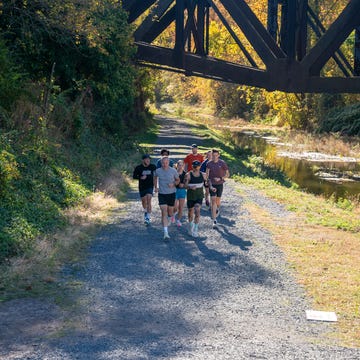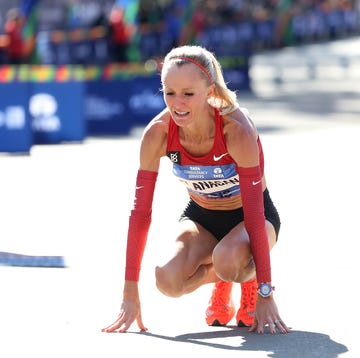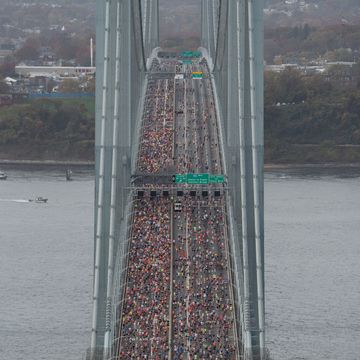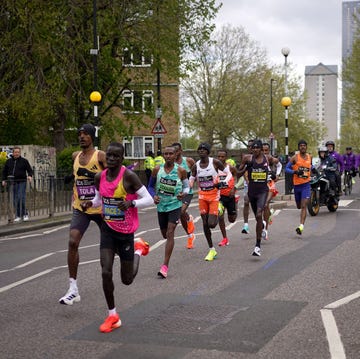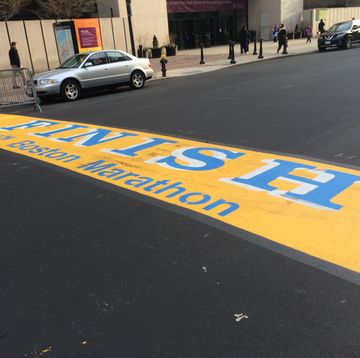Last spring, Running Times published a story I wrote about the allure of the Boston Marathon’s qualifying times. From my earliest days as a runner, now two decades ago, I bought into the Boston myth. Qualifying times made Boston different, special. They gave serious, if not elite, runners a sense of greater purpose and, for the lucky ones, accomplishment. It mattered little to me that the qualifying times were once nothing but a means of controlling the field size. In fact, because they served that role so admirably, they increased the race’s aura of exclusivity.
No more.
On Monday, the 115th Boston Marathon sold out in 8 hours and 3 minutes (1,576 hours faster than last year — but who’s counting), leaving many qualified athletes frustrated and angry. East coasters who worked a full day missed the registration window entirely. West coasters coming off a night shift probably slept through it. Boston is at risk of becoming just another big-city marathon. Worse yet, it might already be there.
For most of the 20th century, Boston was special because it was the first and, practically, the only marathon around. It had a storied history before the founders of New York and Chicago and London had even been born. Since the 1970s running boom, Boston’s role has shifted in a fascinating way. Elite fields elsewhere have long since eclipsed Boston’s, but qualifying times have created an entirely different caché. Boston became the race that everyone wanted to run, not just watch.
Qualifying for Boston never explicitly guaranteed entry, but it felt that way. If you qualified, you had months to register. No need to worry about being perched at your keyboard at 8:59 a.m., credit card in hand, waiting for some IT guy to flip a switch. But now, alas, you’ve got to clear that hurdle as well. About 20,000 did just that on Monday. For the others, it was like acing their finals — then being told there wasn’t enough seating for them at graduation.
That’s a shame.
There are plenty of other races that feel special because of the rush to enter: New York, Marine Corps, London. These are great marathons that anyone would be lucky to run. But they’re not Boston — unless Boston becomes more like them.
For as long as there have been qualifying standards — longer, even — there have been grumblings about their equity. Some have found the concept too exclusionary (see Track & Field News, May 1969: “Attempts to limit entry have been met with determined resistance ... The athletes are proud of the democratic tradition that allows the world class man, the grandfather, the child and the woman to run together.”). Others feel they’re too inclusive (see Letsrun.com every April). Whichever side you’re on, the facts are clear: More people want to run Boston than the already crowded race can handle.
At this point, everyone has an opinion about how to fix Boston. Following last year’s 66-day registration process, the B.A.A. opted for a modest tweak, pushing the opening of registration from September into October. This, of course, only increased the pool of overanxious qualifiers waiting for Monday morning. For the past year there’s also been talk of increasing the field size, but that must first be negotiated with all of the town and cities along the course. Also, how many more runners could realistically be added?
A lottery system would be another logical option, but what allure would qualifying standards hold if they were but a step toward having your fate determined in a random draw? Decreasing the number of entries set aside for charities and VIPs — 5-6,000 — is another non-starter. Those entries generate far too much good will for race organizers to consider sacrificing them. Besides, when the race is filling in hours rather than months, aren’t we talking about numbers far greater than that anyway?
Ask the Coaches: Foamy Sweat.
From a business perspective, this seems like a pretty good problem to have. Publicity? Popularity? Money in the bank? What’s the worry?! But what’s the corresponding cost of bitter, left-out qualifiers? Or entrants frustrated by a maddening registration process that’s at the mercy of the B.A.A.’s website and servers? Or, worst of all, what about about a problem Boston’s never faced: apathy?
A friend forwarded an email to me on Monday evening, from a running buddy of hers. “I didn't get to register,” her friend had written. “Oh well, guess that decides that.”
“Oh well”! Where’s the indignation? The devastation? The profanity?
Boston will always have its history, but its allure to the 21st century marathoner isn’t guaranteed. There are too many other great races to choose from — races with faster courses, fancier amenities, and easier entry procedures.
For a few years, I’ve harbored a fantasy that the B.A.A. could stimulate the gradually-slowing marathon population by systematically lowering its qualifying standards over several years. Now, they just might have the impetus to do this. Like a track meet official inching the high jump bar higher, they could nudge the masses to push themselves just a little faster each year.
As a first step, they could eliminate the 59-second cushion currently granted to qualifiers (if your BQ is 3:10, that actually means 3:10:59). But that, also, is just a tweak. As a second step, they should lower the qualifying standards for the first time since 1980. Without sacrificing the age and gender diversity that’s been introduced in the three decades since then, challenge all of these groups to run just a little bit faster in the coming year.
Returning a sense of exclusivity is the best way for Boston to solve its problem. And based on Monday’s mad rush, the world’s marathoners have earned that gesture of respect.
Foods That Cut Inflammation to Improve Performance Running Times Thats a shame.


